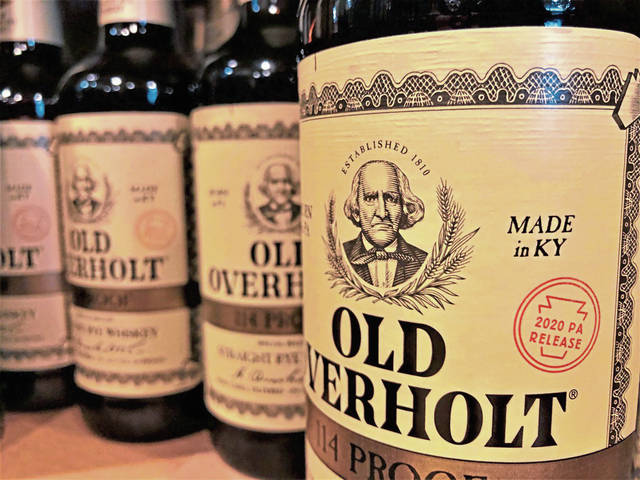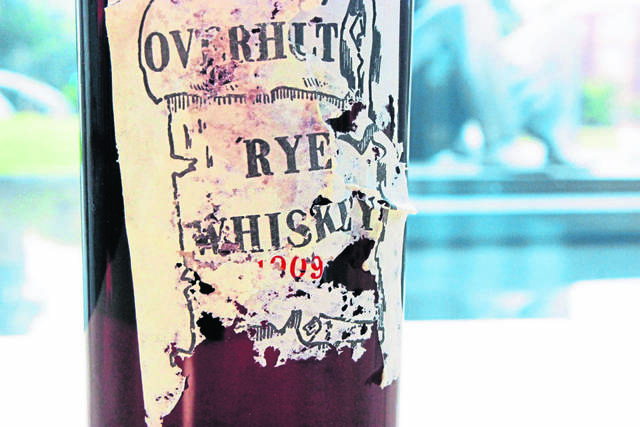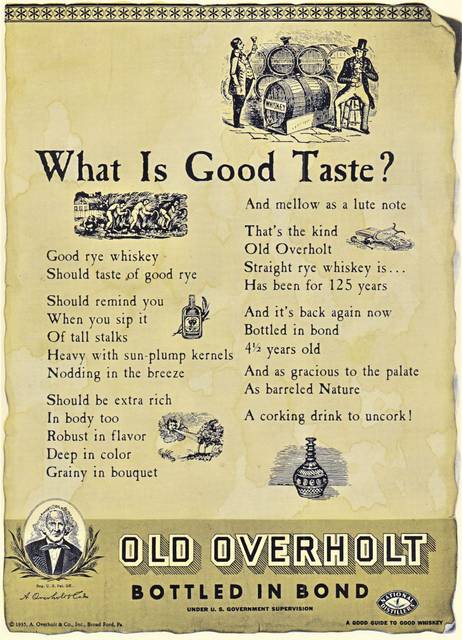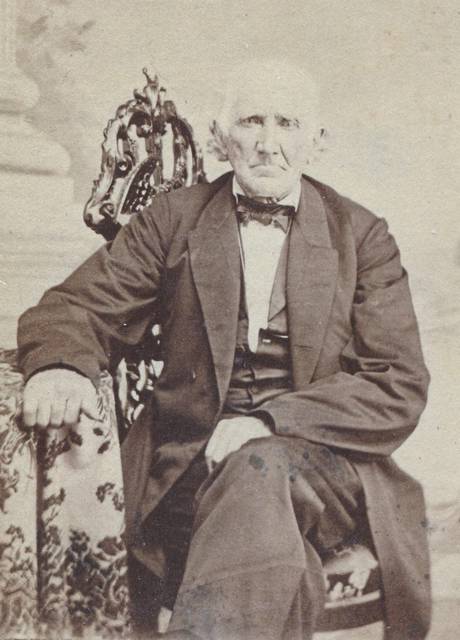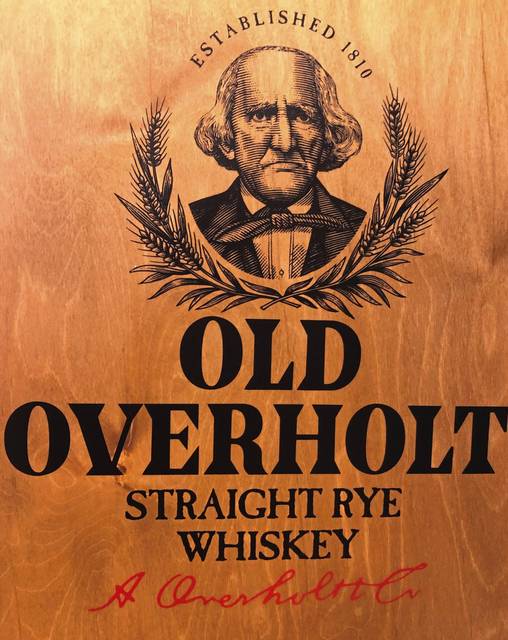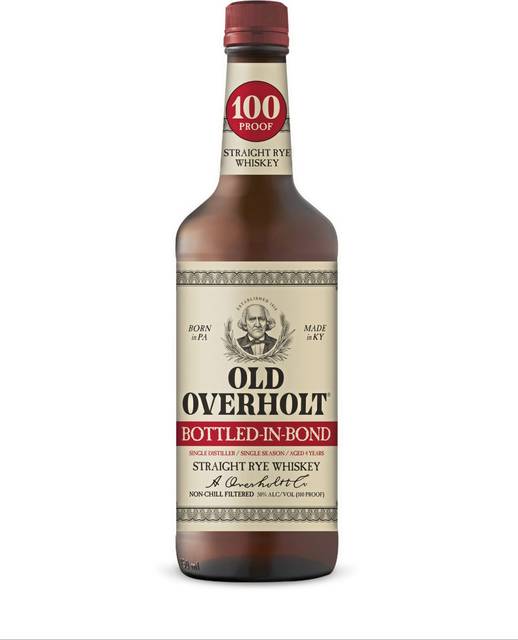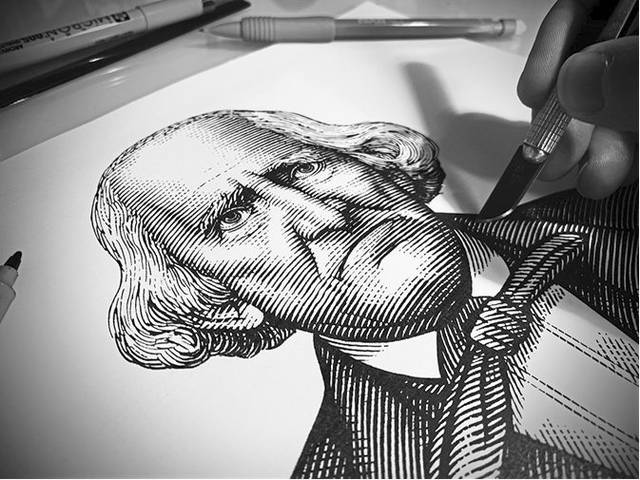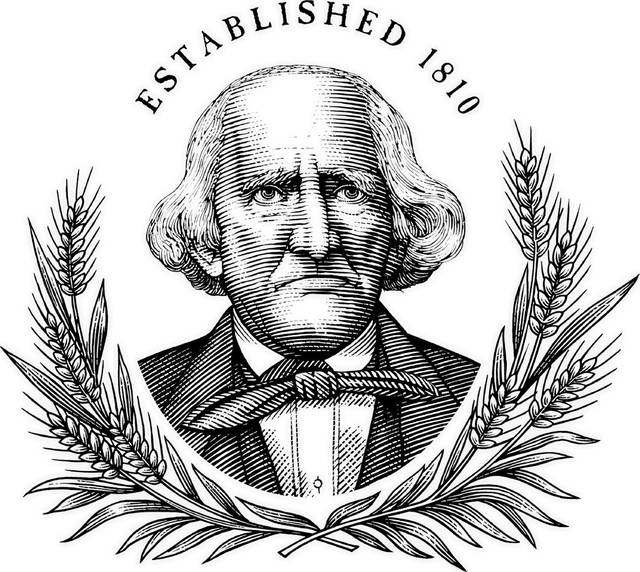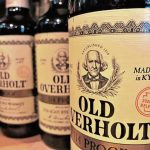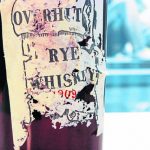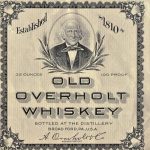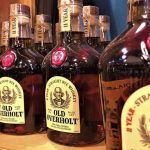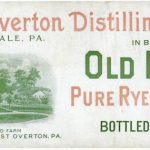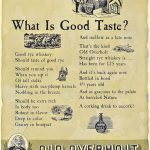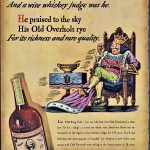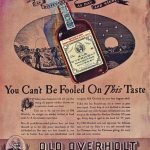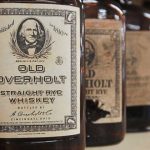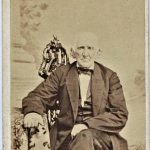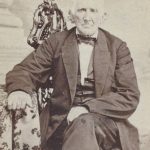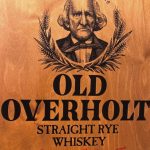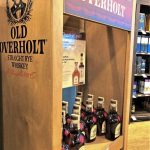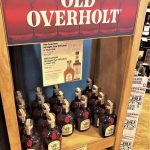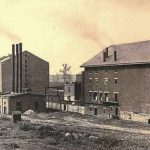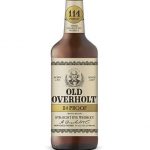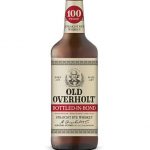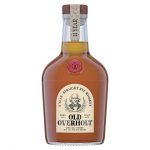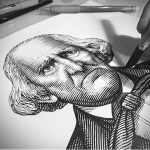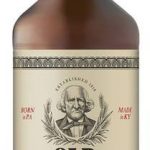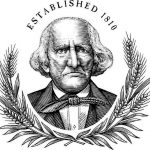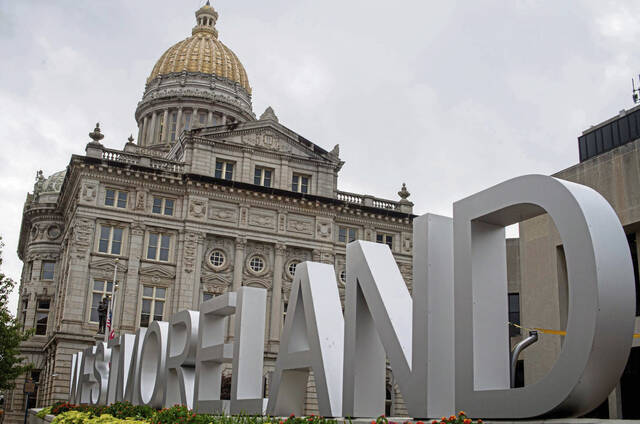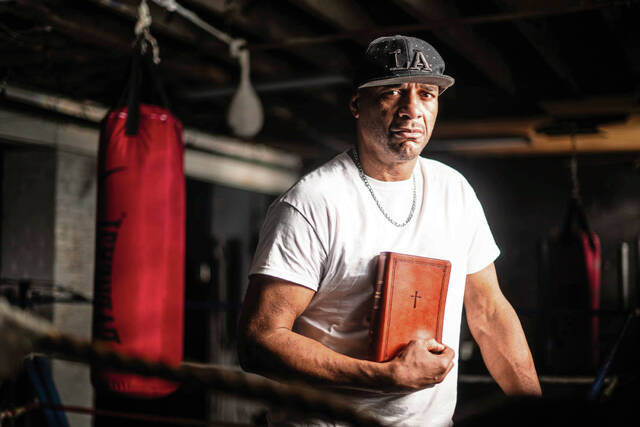After 210 years of continuous production, America’s oldest whiskey brand — Westmoreland County-born Old Overholt — is undergoing a transformation.
It’s part of a planned, long-range evolution to raise the iconic rye spirit from its customary, lower-shelf position alongside chums with names like Evan and Ezra to a top-shelf pantheon occupied by whiskey gods and, lately, angels.
“Overholt has this really amazing heavyweight title belt that it can claim. Overholt is the longest continually maintained and produced whiskey brand in U.S. history. Bar none. Full stop,” said Bradford Lawrence, rye whiskey specialist for Old Overholt and Beam Suntory, which has owned the brand since the late 1980s.
“It’s a brand that can lay claim as a cornerstone of the American whiskey canon.”
Now, it also is one that has a new look, a different filtration method to enhance flavor, stronger proof and two extremely limited releases — a 114-proof and an 11-year-old straight rye whiskey available only in Pennsylvania and Ohio.
These are the first moves for the brand since 2018, when its 100-proof Bottled-in-Bond line — once its staple — was reintroduced in the U.S. It had been discontinued in 1963, as rye and whiskey sales continued a post-Prohibition plummet. The changes, though, are just the first in what is hoped to be the foundation for a fundamental shift for the centuries-old brand looking to gain footing in the premium sector.
“As this Old Overholt brand revitalization is happening, we have to make slow steps toward what our end goal is,” said Tim Heuisler, Beam Suntory’s American whiskey ambassador on the East Coast. “A big stepping stone was to get these test markets and these limited-release whiskeys to two of the states that really helped create this brand back in the day and still are big supporters of it — and that is Pennsylvania, of course, its homeland, and then Ohio, being on that Rust Belt.”
Other brands made by Beam Suntory — a global producer of bourbon and other spirits — through its Kentucky operation where Old Overholt is now made include Baker’s, Basil Hayden, Booker’s, Knob Creek, Maker’s Mark and, of course, Jim Beam.
“At the James B. Beam Distilling Co., we’ve always added some corn (the predominant grain in bourbon) as the secondary grain, or flavoring grain, to any of the rye whiskeys we’ve made,” Heuisler said.
That includes Old Overholt, which historically is believed to have been an all-rye, Monongahela-style whiskey. Perhaps a limited release return to those roots could be part of the brand evolution.
“Shoot-for-the-moon ideas like a Pennsylvania-style, Monongahela-style rye, is it in the future? Is it in the pipeline? To be determined,” Heuisler said. “But we can tell you it is a conversation, and it’s a very active conversation.”
Where the brand goes in its evolution will be guided by the market and its Keystone State history.
“Pennsylvania is a huge, huge piece of this puzzle,” Heuisler said.
Becoming Old Overholt
A family of 13, led by Henry Overholt (born Henrich Oberholtzer in 1739), in 1800 spent some six months trekking from Bucks County across Pennsylvania and the Allegheny Mountains to Westmoreland County, settling around Jacobs Creek in East Huntingdon, in what now is known as the village of West Overton, located about 40 minutes east of Pittsburgh.
Overholt, a dedicated Mennonite, set to farming and carving out an entrepreneurial niche — including distilling whiskey from excess grain, a tradition passed down through his German and Swiss heritage.
The family’s arrival came six years after the Whiskey Rebellion in Western Pennsylvania, when the crescendo of ire and violence from farmer-distillers against a federal tax on whiskey culminated with President George Washington marching a militia into the region and charging the first men in the young country’s history with treason.
“As farmers, the Overholts wanted to make sure they were squeezing every drop from their grain. So, as a farmer-distiller, if you have excess grain, you start distilling it to make a new commodity. That was the genesis of so many distillers in the U.S., (who) actually started from farming first and then becoming a distiller,” Lawrence said.
“Then Abraham Overholt takes that to the next level.”
In 1810, Abe Overholt transformed his father’s distilling operation into a commercial business — eventually known as A. Overholt & Co.. It would become one of the first distilleries to bottle and market its own brand, Old Farm Pure Rye Whiskey, advertise nationally by name and adopt the bottled-in-bond process, created by federal law in 1897 to set regulations on whiskey production and guarantee authenticity.
Overholt later expanded his operation from West Overton to a sprawling complex just across the border in Broad Ford, Fayette County.
He plied a no-nonsense rye whiskey reminiscent of his religious roots, even if that made him something of an outlier among his fellow congregants, Lawrence said.
By his death in 1870, Abraham Overholt had built his rye whiskey business into one of the top brands in America, much less the crowded field of Western Pennsylvania distilleries — which included Dillinger, Gibson, Guckenheimer, Large and Thompson, among others.
“Of late years his establishment has been the largest in the country,” stated Overholt’s obituary, “consuming vast surplus products of corn and rye of that whole fertile region.”
Following his death, the brand in 1888 was renamed Old Overholt. The label included Abraham’s scowling portrait, which has been described as grumpy or stoic — and depicted in the only existing photographs of him.
“If it’s any indication to how seriously he takes his rye, it’s definitely there on the front label,” Lawrence said of the re-created illustration on the new labels by Steven Noble, the artist who created the American Express Centurion logo.
“The really cool thing about this brand is that it is a story with no dead ends. All the stories are true,” said Lawrence, who has worked on this project in earnest for five years with Beam Suntory but became intrigued by Old Overholt a dozen years ago as a bartender in Philadelphia.
Then, now and the future
Since 2013, Jessica Kadie-Barclay has been dedicated to West Overton Village and Museums — and making sure the rich history of the former Overton home and original distillery site continues to resonate.
Having Beam Suntory invest its resources into the Old Overton brand — and especially its history — means everything.
“They are doing it in a very thoughtful and meaningful way,” said Kadie-Barclay, CEO of West Overton Village and Museums. “They really care about the whole story — what Overholt brought to this site, this region, the country.
“They didn’t have to spin it. It is real history. … This is a family who still exist today. This is a family who had an impact on American history.”
Abraham’s grandson, Henry Clay Frick, a coke and steel magnate who once was a business partner of Andrew Carnegie, bought the rights to the Overholt brand from his family in 1881 for $1, Lawrence said. He sold a third of the distillery to banking tycoon Andrew Mellon, the grand-uncle of late Tribune-Review owner and publisher Richard Mellon Scaife.
Mellon, who served as U.S. Treasury secretary under Presidents Harding, Coolidge and Hoover from 1921-32, issued the company a medicinal license to sell whiskey during Prohibition — and allowing Old Overholt to lay claim to being the oldest continually produced and maintained whiskey in America.
“We didn’t miss a beat since 1810, even through Prohibition,” said Lawrence, who has visited West Overton Village and Broad Ford numerous times.
On the first visit, he said it immediately struck him that he was “walking on hallowed whiskey ground.”
”It is so rare to have the original existing birthplace of brand in the whiskey world,” Lawrence said. “To see and touch the actual bricks that formed the foundations of the distillery, to walk the same steps Abraham might have taken around the grounds, to stand at Abraham’s desk overlooking the old distillery, to look out over the rolling Pennsylvania hills and imagine acres of farmland and rye was and is incredibly powerful.”
About 60 cases of Old Overholt bottled between 1901-12 were discovered in a wine cellar after Scaife’s death in 2014.
Last year, a 1909 bottle from that lot fetched $14,000 at auction to benefit the Speed Art Museum in Kentucky. A 1911 bottle sold the same week for $5,500, benefiting the Fort Ligonier Association.
Beam Suntory and the players behind the reinvention of Old Overholt hope to build on that collectible desire, history and, hopefully, increased profile of America’s oldest whiskey – and sole owner of the rye brand.
“When you peel back the layers of this story, it’s a story of stubborn immigrants and pioneers. It’s a story of tradition and renegade businessmen,” Bradford said.
“Overholt is as patriotic as apple pie and as American as the steel industry.”


